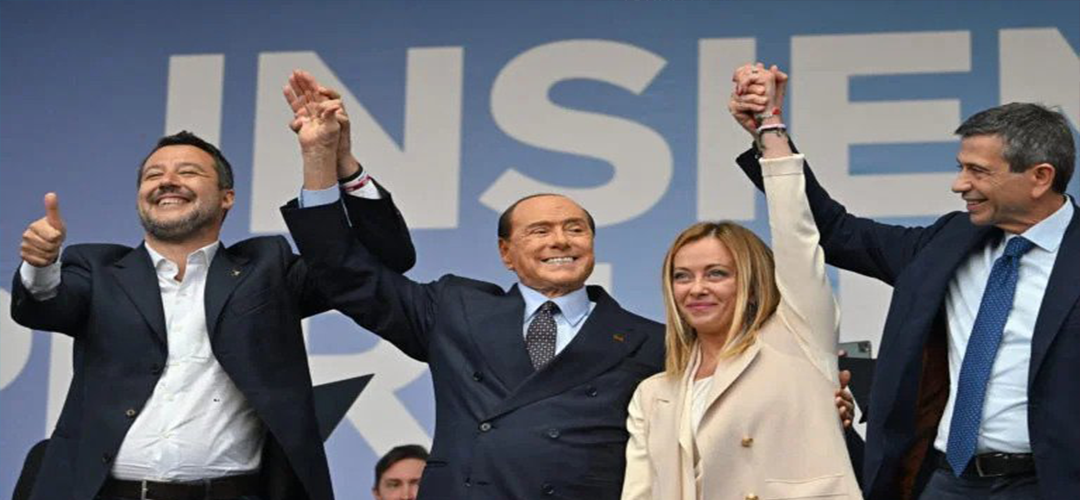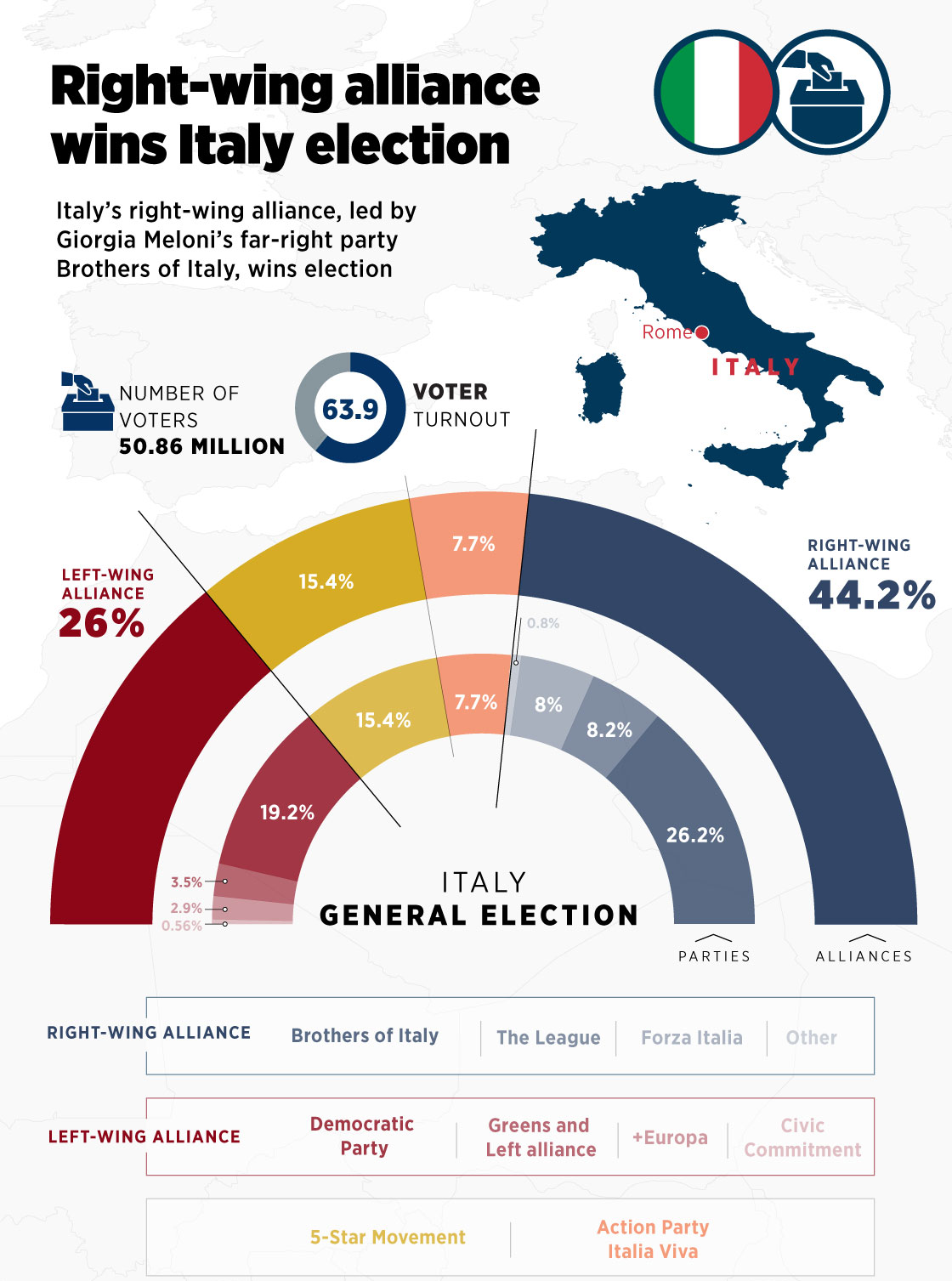A THROWBACK TO IL DUCE!!
October 1, 2022 | Expert Insights

Nobody could have predicted that a leader claiming political lineage from Benito Mussolini's Black Shirts would be voted to power almost a century after Il Duce marched into Rome. Georgia Meloni, who comes from a party founded by the neo-fascist Italian Social Movement, is now on track to become Italy's first female prime minister.
With the exit of Prime Minister Draghi’s administration in July, Italy staged a snap election in September. The radical-right alliance led by Giorgia Meloni's Brothers of Italy won an outright majority of votes in the Italian parliament.
The results have invoked mixed emotions. While some see this as a chance to reinstate ultraconservative society and pull back progressive laws, others are anxious about their rights. However, the question remains if Meloni's leadership will meet the same demise as every other populist political party in Italian history.
Background
Italy has seen political unrest before; in less than 75 years, there have been 67 different governments. The common good is rarely what motivates its politicians, who are frequently driven by vested interests and personal considerations. For the same reason, Mario Draghi's administration also collapsed, failing to garner the support of his coalition.
Giorgia Meloni had declined to join Mario Draghi's broad-based coalition, which left her as the single significant opposition figure when it disintegrated in July. Meloni created Brothers of Italy in 2012, and it received a pathetic 4.3 per cent of the vote in the 2018 elections. Since then, the party has made significant progress and has won 26 per cent of the vote in a coalition with Silvio Berlusconi's Forza Italia and Matteo Salvini's Lega.
The elections took place against the lowest voter turnout in post-war Italian history, which fell from 73 per cent in 2018 to 64 per cent in 2022. This reflects the perception of a nation where substantial segments of the population, particularly in the South, are disenchanted with decades of political promises but little action.
It is projected that Italy's internal and foreign policies will significantly change now that the right-wing coalition is in power. But assuming control during such a chaotic moment will be easier said than done.

Analysis
Across Europe, there are unmistakable indications. The popularity of liberal politics is waning, and populism is now seen as the only realistic solution to Europe's numerous issues. What might be characterized as conservative or populist movements are becoming more influential in each successive EU member state, be it Hungary, Sweden or Italy.
The world's Trumps and Bolsonaro's are not all that different from Giorgia Meloni. Following Mario Draghi's resignation due to political and economic unrest, she won widespread popularity by capitalizing on the financial failure of the previous governments.
Economically, Italy may not undergo significant change, and Meloni will be eager to demonstrate to elites at home and abroad that she is a trustworthy leader. In the years after the pandemic outbreak, rising interest rates have worsened Italy's debt problem. Currently estimated to be $2.9 trillion, the national debt is predicted to reach $3 trillion by the end of 2023, or around 150 per cent of GDP.
However, a lot may change for the "enemies of the people." According to the far-right, this category includes immigrants, those who identify as members of racial, religious, or sexual minorities, as well as judges, philosophers, and journalists who dared to criticize the new administration.
New developments are expected in Italian foreign policy. Meloni has previously supported sanctions on Russia, denounced Russia's war on Ukraine, and sent weapons to Ukraine. Meloni has criticized China as well, criticizing its "economic expansion measures." Italy joined the Chinese Belt and Road Initiative (BRI) in 2019 as the program's first significant participant. Since then, Meloni has called the agreement a "huge mistake," hinting that Italy will reconsider its position on the treaty under her leadership.
Even though Meloni and her coalition have been critical of the EU, it is unlikely that this will result in significant changes to Italy's policy on EU membership. The economic difficulties will significantly impact the incoming administration's decision-making. The coalition must accept certain conditions by the EU to get a much-needed assistance fund from the organization.
Assessment
- The protracted crisis in Ukraine has seriously impeded Italy's economic progress. Because energy supplies and resources are becoming more expensive, households have reduced their usage, hampering the recovery rate. Under such economic conditions, there is little leeway for the new dispensation to exercise any specific ideological agenda.
- A dictatorial posture and "Italy first" rhetoric will not serve the country well in the long run. Italy must welcome immigrants who actively support its economy and soothe the choppy waters.
- The political divide remains the biggest challenge to stability. It is undeniable that there are more parties on the left than there are voters. Leaders must resolve the conflicts between the larger parties and the division inside the smaller parties.








Comments